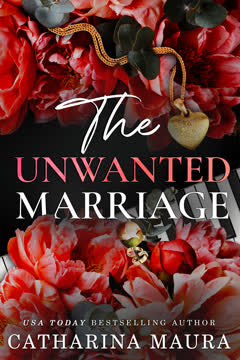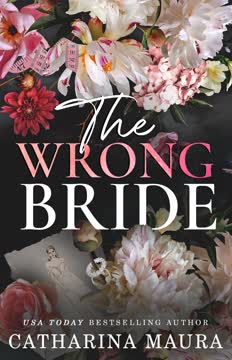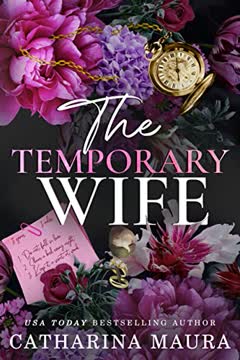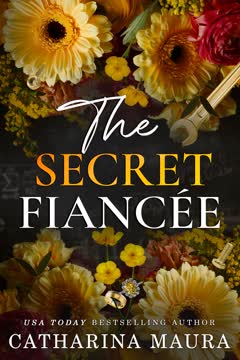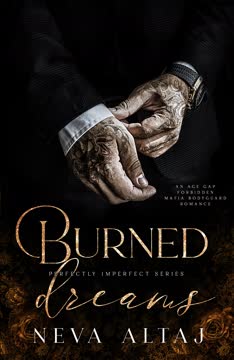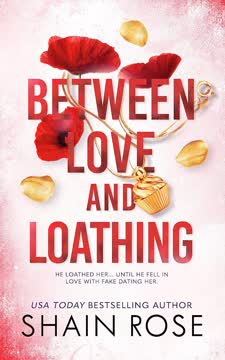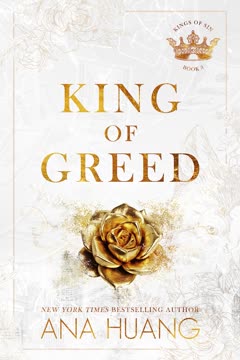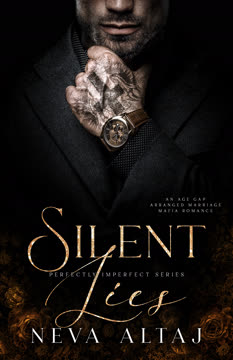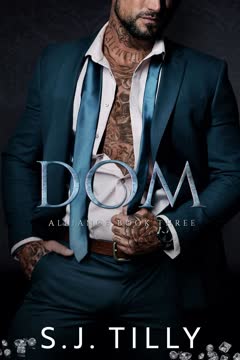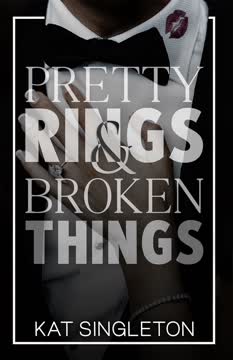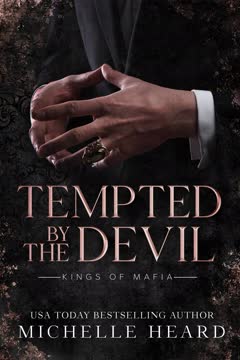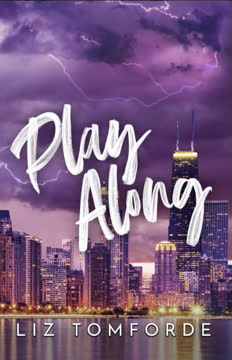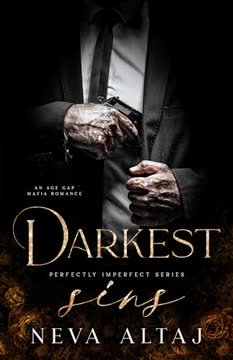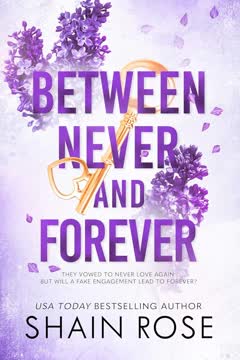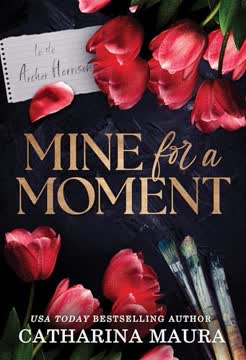Plot Summary
The Unwanted Engagement
Dion Windsor, heir to a powerful family, is summoned by his formidable grandmother and told his wedding date is set. He's been engaged since childhood to Faye Matthews, a talented pianist, as part of a Windsor tradition. Both are trapped by family expectations—Dion by duty and guilt, Faye by her father's greed and violence. Their engagement is a sentence, not a choice, and both have spent years running from its reality, Dion through distance and work, Faye through obedience and silent suffering.
Gilded Cages, Hidden Bruises
Faye's life is dictated by her abusive father, who controls her every move and uses her as a pawn for financial gain. She endures his cruelty to protect her younger sisters, believing her marriage to Dion will be their salvation. Her stepmother and siblings are complicit or powerless, and Faye's only solace is the piano—a skill forced upon her to make her a suitable Windsor bride.
Forbidden Longings
Faye finds fleeting happiness with Eric, a kind lawyer, in a relationship she knows is doomed. Their connection is a rebellion against her fate, a taste of freedom and choice. But as her wedding to Dion approaches, she must end things with Eric, sacrificing her heart for her family's safety.
The Confrontation at The Lacara
Dion catches Faye with Eric at a Windsor hotel, shattering the polite distance between them. The confrontation is raw and exposes their true feelings—Dion's jealousy and possessiveness, Faye's longing for agency. Dion demands Faye end her relationship with Eric, setting the tone for their tumultuous dynamic.
Shattered Illusions
Faye's breakup with Eric leaves her hollow, and Dion's own guilt and unresolved trauma haunt him. Both are forced to confront the reality of their engagement: it is not just a family arrangement, but a crucible for their deepest wounds. Their interactions become charged with unspoken desire and resentment.
The Price of Obedience
Faye's father's abuse escalates as the wedding nears, punishing her and her sisters for any perceived slight. Faye's obedience is a shield, but it comes at the cost of her spirit. Dion, meanwhile, is pressured by his siblings and grandmother to win Faye over, not just for inheritance, but for the family's legacy.
Family Ties and Sibling Schemes
Dion's siblings, each with their own complicated marriages, intervene with well-meaning but chaotic advice. Their meddling highlights the contrast between the Windsor family's loyalty and Faye's isolation. Dion is pushed to seduce Faye, but what begins as strategy becomes genuine yearning.
The Dress, The Scandal
Faye's wedding dress fitting is overshadowed by tabloid rumors of Dion's infidelity with his secretary, Maria. The media storm threatens the fragile trust between Dion and Faye, while her father uses the scandal to tighten his grip. Faye's sense of self-worth is battered, but a spark of defiance grows.
The Piano's Lament
Dion's mother's piano, a symbol of loss and guilt, becomes a point of connection between him and Faye. Both are haunted by the past—Dion by his parents' tragic death, Faye by her mother's absence. Through music, they begin to share their pain and glimpse the possibility of solace in each other.
The Charity Gala
At the annual Windsor gala, Dion and Faye break from their scripted roles. A dance becomes a turning point, as genuine attraction and vulnerability surface. Dion's jealousy and Faye's longing for freedom clash, but their chemistry is undeniable. The night ends with promises and new fears.
The Awakening
A family trip to Hawaii forces Dion and Faye into close quarters, stripping away pretense. Their physical relationship ignites, but more importantly, they begin to see each other's true selves—flawed, wounded, and yearning for connection. Dion's protectiveness and Faye's courage grow in tandem.
The First Betrayal
Faye's secret contact with Eric is discovered, leading to a painful confrontation. Dion's possessiveness and Faye's guilt threaten to destroy their fragile bond. Yet, instead of violence, Dion offers forgiveness and a chance to start anew, signaling a shift from control to partnership.
The Hawaii Reckoning
In the aftermath of betrayal, Dion and Faye confront their deepest fears—his fear of not deserving love, hers of never being free. Their physical union is both passionate and healing, but emotional scars remain. They vow to try, to be honest, and to build something real.
The Seduction Pact
The Windsors' matriarch and siblings continue to shape Dion and Faye's marriage, for better and worse. Faye is given control of a family foundation, a gesture of trust and responsibility. Yet, the specter of her father's abuse and Dion's guilt over his parents' death loom large.
The Wedding Night
Their wedding night is a crucible—Faye's inexperience and Dion's tenderness collide, leading to a night of vulnerability and pleasure. They begin to rewrite the narrative of their marriage, moving from obligation to choice, from pain to passion.
The Cost of Freedom
Faye's father's financial and emotional abuse is exposed, leading to his downfall at the hands of the Windsor brothers. Faye is finally free, but the cost is high—her relationship with her sisters and stepmother is shattered, and she must reckon with the reality of her own complicity and survival.
The Father's Downfall
The Windsors orchestrate Faye's father's ruin, both financially and physically. Faye is given the choice to show mercy or vengeance, and she chooses to cut ties, reclaiming her agency. Dion's willingness to do anything for her, even become a monster, is both a blessing and a burden.
The Cottage Secret
Faye secretly buys a cottage, a symbol of her need for autonomy and a safety net. When Dion discovers it, he is devastated—not by the act itself, but by what it reveals about her trust in him. Their marriage is tested as both must confront the difference between freedom and running away.
The Divorce Ultimatum
Dion, determined to give Faye true agency, offers her a divorce. He steps back, allowing her to discover who she is without him. Both are heartbroken, but the gesture is an act of love—he wants her to choose him, not be trapped by him.
The Search for Self
Alone for the first time, Faye travels, plays music in train stations, and lives on her own terms. She realizes that freedom is empty without love, and that her dreams are richer when shared. Dion, meanwhile, watches from afar, hoping she will return.
The Return and the Choice
Faye returns, not because she must, but because she wants to. She rejects Eric's advances and reaffirms her love for Dion. They both acknowledge their flaws and the pain they've caused, but choose to move forward together, stronger for having faced their demons.
The Second Proposal
Dion proposes to Faye again, this time as a true partner, not as a duty. They exchange vows of mutual support, honesty, and love, promising to keep choosing each other every day. Their families, once sources of pain, become witnesses to their healing.
Healing Duet
Together, Dion and Faye perform a duet at a charity concert, honoring their mothers and the legacy of love and resilience. Their marriage, once unwanted, becomes a testament to the power of choice, forgiveness, and the courage to heal. The past is not forgotten, but it no longer defines them—they are free, together.
Characters
Dion Windsor
Dion is the second son of the powerful Windsor family, burdened by guilt over his parents' death and the weight of family expectations. He is intelligent, driven, and emotionally scarred, using work and distance to avoid pain. His engagement to Faye is both a duty and a source of torment, as he fears he will destroy her happiness. Dion's journey is one of learning to forgive himself, to love without control, and to trust in the possibility of happiness. His relationship with Faye transforms him from a man ruled by guilt and fear into a partner capable of vulnerability, passion, and true devotion.
Faye Matthews Windsor
Faye is a gifted pianist whose life has been shaped by abuse, loss, and the relentless pursuit of perfection. Her father's violence and manipulation have left her with deep scars, but also a fierce determination to protect her sisters and reclaim her agency. Faye's engagement to Dion is both a prison and a lifeline, offering hope of escape but also new forms of control. Her journey is one of self-discovery, as she learns to distinguish between obedience and choice, fear and love. Through music, courage, and the willingness to risk her heart, Faye becomes not just a survivor, but a woman who chooses her own destiny.
Eric
Eric is Faye's secret boyfriend, a kind and supportive lawyer who represents the life she might have had. He is patient, understanding, and genuinely cares for Faye, but ultimately cannot compete with the pull of her connection to Dion. Eric's presence forces Faye to confront what she truly wants, and his heartbreak is a catalyst for her growth.
Jimmy Matthews (Faye's Father)
Jimmy is a controlling, violent man who uses Faye as a means to financial security. His cruelty is both physical and psychological, shaping Faye's fears and her understanding of love and power. His eventual downfall is a moment of catharsis, but also a reminder of the lingering effects of trauma.
Anne Windsor (Dion's Grandmother)
Anne is the formidable head of the Windsor family, orchestrating marriages and alliances with ruthless efficiency. Her actions are driven by a desire to protect the family legacy, but often come at the expense of individual happiness. Over time, she reveals a capacity for growth and understanding, ultimately supporting Dion and Faye's choices.
The Windsor Siblings (Ares, Luca, Zane, Lexington, Sierra)
Dion's siblings each have their own complicated relationships and histories, but are united by fierce loyalty. They provide comic relief, support, and sometimes chaos, pushing Dion to fight for Faye and offering a model of imperfect but enduring love.
Maria
Maria is Dion's secretary, rumored to be his lover. Her presence stirs insecurity in Faye and forces Dion to confront the importance of boundaries and transparency in marriage. Ultimately, she is a catalyst for growth, not a true threat.
Abigail, Linda, Chloe (Faye's Stepmother and Sisters)
Faye's stepmother and sisters are both victims and enablers of her father's abuse. Their relationship with Faye is fraught with jealousy, dependence, and betrayal, highlighting the complexities of family ties and the cost of survival.
Raven, Valentina, and the Windsor Wives
The wives of Dion's brothers become Faye's found family, offering friendship, guidance, and a sense of belonging. Their own stories of love and resilience mirror Faye's journey and provide hope for healing.
Silas Sinclair and Xavier Kingston
Silas and Xavier are the Windsor family's security and underworld connections, willing to do whatever it takes to protect the family. Their actions blur the line between justice and vengeance, reflecting the moral complexity of the world Dion and Faye inhabit.
Plot Devices
Arranged Marriage as Emotional Crucible
The central device is the arranged marriage, which forces Dion and Faye to confront their deepest wounds and desires. It is both a source of conflict and the means by which they find freedom—not from each other, but from the legacies of pain and control that shaped them.
Dual Narration and Internal Monologue
The story alternates between Dion and Faye's perspectives, using internal monologue to reveal their fears, hopes, and evolving feelings. This structure allows readers to understand the psychological complexity of both characters and the slow, painful process of building trust.
Symbolism of Music and the Piano
The piano is a recurring symbol—of Faye's lost mother, Dion's guilt, and the possibility of healing. Music becomes a language through which they express what words cannot, and their duet at the end is a metaphor for their hard-won harmony.
Family as Both Support and Obstacle
The Windsor and Matthews families are both sources of pain and healing. Sibling schemes, parental manipulation, and the contrast between found and biological family drive much of the plot, highlighting the importance of chosen bonds.
Secrets, Betrayals, and the Power of Choice
The narrative is propelled by secrets—Faye's relationship with Eric, her hidden cottage, Dion's guilt and nightmares. The turning point is the granting of true choice: Dion offers Faye a divorce, and she must decide what she wants, not what she is told to want.
Healing Through Mutual Vulnerability
The story's resolution is not a fairy-tale ending, but a commitment to ongoing healing. Therapy, honest communication, and the willingness to face the past together are depicted as essential to lasting love.
Analysis
The Unwanted Marriage is a modern, emotionally intelligent reimagining of the arranged marriage trope, using it as a lens to explore trauma, agency, and the transformative power of love. Catharina Maura's narrative is as much about breaking cycles of abuse and control as it is about romance. The novel's greatest strength lies in its psychological depth: both Dion and Faye are deeply wounded, and their journey is not about rescuing each other, but about learning to rescue themselves and then choose each other freely. The story challenges the notion that love is enough on its own, insisting instead on the necessity of choice, honesty, and mutual healing. In a world where so many are shaped by the expectations and wounds of others, The Unwanted Marriage offers a hopeful message: that it is possible to break free, to heal, and to build a partnership rooted in respect, passion, and the courage to keep choosing each other, every day.
Last updated:
FAQ
Synopsis & Basic Details
What is The Unwanted Marriage about?
- A Fated, Forced Union: The Unwanted Marriage by Catharina Maura centers on Dion Windsor and Faye Matthews, two individuals bound by an arranged marriage orchestrated by their families since childhood. Dion, heir to a powerful conglomerate, is haunted by guilt and trauma, while Faye, a gifted concert pianist, lives under the oppressive control of her abusive father.
- A Journey of Unexpected Love: The narrative explores their reluctant journey from a marriage of obligation to one of profound, chosen love. Initially marked by distance, resentment, and hidden desires, their forced proximity gradually strips away their defenses, revealing deep-seated wounds and an undeniable connection.
- Healing Through Shared Vulnerability: The story delves into themes of trauma, control, and the search for agency, as both Dion and Faye confront their pasts and learn to trust each other. Their relationship evolves through intense emotional and physical intimacy, ultimately becoming a testament to healing and the power of conscious choice.
Why should I read The Unwanted Marriage?
- Deep Psychological Exploration: Readers seeking a romance that delves beneath surface-level attraction will appreciate the intricate psychological profiles of Dion and Faye. The novel offers a compelling analysis of how past trauma shapes present relationships, making their journey to love feel earned and deeply resonant.
- Subversion of Tropes: While starting with classic arranged marriage and billionaire romance tropes, the book masterfully subverts expectations by focusing on mutual healing and the protagonists' individual growth. It's a story where characters don't just fall in love, but actively choose love and work through their baggage, offering a fresh perspective on familiar narratives.
- Emotional Intensity & Satisfying Payoff: Catharina Maura crafts a narrative rich with emotional tension, raw vulnerability, and steamy encounters. The slow burn of their emotional connection, combined with the explicit and consensual exploration of their desires, culminates in a deeply satisfying and hopeful conclusion about finding belonging and freedom within a committed partnership.
What is the background of The Unwanted Marriage?
- Dynastic Family Obligations: The story is set against the backdrop of the powerful Windsor family, a dynasty known for its wealth, influence, and tradition of arranged marriages to secure alliances and maintain power. This tradition is the primary catalyst for Dion and Faye's unwanted union, highlighting the immense pressure and lack of personal choice faced by its members.
- A World of Hidden Cruelty: Faye's background reveals a stark contrast to the gilded cage of the Windsors. Her home life is dominated by her father's physical and emotional abuse, driven by financial desperation and a desire to exploit Faye's talents and marriage for personal gain. This creates a pervasive atmosphere of fear and control that shapes Faye's entire existence.
- Interconnected Family Saga: The Unwanted Marriage is Book Three in "The Windsors" series, building on the established world and characters from previous novels (Ares & Raven, Luca & Val). This context enriches the narrative with existing family dynamics, sibling relationships, and a shared history of navigating love within a powerful, demanding family structure.
What are the most memorable quotes in The Unwanted Marriage?
- "You are both my torment and my salvation, my muse and my damnation. For you, I'll willingly go to the depths of hell. Did you know that?" (Dion, Chapter 52): This quote encapsulates Dion's profound internal conflict and the all-consuming nature of his love for Faye. It highlights his self-perception as a "monster" and Faye's transformative power, revealing the depth of his emotional dependency and the high stakes of their relationship.
- "I'm sorry, Eric. I'm still married, and I intend for it to remain that way. I choose him. After everything, despite everything, I choose him. I always will." (Faye, Chapter 65): This pivotal declaration marks Faye's ultimate choice and agency. It signifies her conscious decision to commit to Dion, not out of obligation or fear, but from a place of genuine love and understanding, solidifying her journey from a pawn to a powerful partner.
- "You're mine, and you will be for the rest of your life. There's no hiding from me. There's no place you could go where I wouldn't hunt you down." (Dion, Chapter 42): This quote, delivered amidst a raw, passionate scene, reveals the darker, possessive side of Dion's love, yet Faye's response ("I can live with that") transforms it from a threat into a declaration of mutual, intense devotion. It underscores the complex power dynamics and the unique acceptance they find in each other's "unworthy" parts.
What writing style, narrative choices, and literary techniques does Catharina Maura use?
- Dual Narration and Internal Monologue: Maura employs alternating first-person POVs for Dion and Faye, offering intimate access to their internal monologues, fears, and evolving desires. This narrative choice is crucial for understanding their individual psychological complexities and the gradual, often conflicted, development of their relationship, enhancing the psychological analysis of The Unwanted Marriage.
- Emotional Intensity and Raw Dialogue: The writing style is characterized by its emotional directness and raw, often explicit, dialogue. Characters express their pain, anger, and desire with little filter, creating a visceral reading experience. This intensity is particularly evident in their confrontations and intimate scenes, driving the emotional stakes of the themes in The Unwanted Marriage.
- Symbolism and Foreshadowing: Maura subtly weaves in symbolism, such as the recurring motif of the piano representing both past trauma and future healing, and the significance of colors (e.g., red roses, Faye's red hair). Foreshadowing, often through seemingly casual remarks or Dion's nightmares, builds suspense and deepens the thematic resonance of their journey, contributing to the overall analysis of the novel.
Hidden Details & Subtle Connections
What are some minor details that add significant meaning?
- Lexington's "Lex-Board" and Sibling Bets: The recurring joke about Lex's inventions and the brothers' bets (e.g., on Dion's reaction to Zane's heartbreak in Chapter 56) subtly highlights the deep, supportive, yet often chaotic bond within the Windsor siblings. This seemingly trivial detail underscores their collective concern for each other, even when expressed through teasing, and foreshadows their united front in protecting Faye.
- The Specificity of Faye's New Phone: When Dion replaces Faye's phone (Chapter 21), he gives her a prototype of Lex's unreleased phone, pre-configured with his number saved as "Husband" and Eric's blocked. This isn't just a gift; it's a subtle, possessive act of claiming and protection, demonstrating Dion's evolving desire for control over Faye's external connections, even as he later strives for her autonomy.
- The Locket's True Origin: The locket Dion gives Faye in the Epilogue, initially believed to be her mother's, is revealed to be his mother's (Chapter 67). This detail is profoundly symbolic, representing not just a shared legacy and the healing of past wounds, but also Faye's full integration into the Windsor family, connecting her directly to Dion's mother and the foundation they both cherished. This symbolism deepens the meaning of their union.
What are some subtle foreshadowing and callbacks?
- Dion's Early Piano Connection: In Chapter 1, Dion visits his childhood home and sits at his mother's piano, lamenting that he stopped playing. This subtly foreshadows Faye's later role in healing his relationship with music and his past, as she eventually coaxes him to play again (Chapter 43), transforming the piano from a symbol of grief into one of shared joy and connection. This is a key element in Dion Windsor's character development.
- Faye's "Unfocused" Gaze While Playing: When Dion first sees Faye play his mother's piano (Chapter 23), he notes her "unfocused look," which he later realizes is her losing herself in the music. This foreshadows her later confession that playing is her escape and "all she has" (Chapter 31), revealing the depth of her internal suffering and the piano's dual role as both solace and a reminder of her father's control.
- The Windsor Wives' "Anti-Poker Night": The personalized shot glasses and the concept of an "Anti-Poker Night" (Chapter 40) subtly foreshadow the strong sisterhood that Faye will find within the Windsor family. It hints at a support system of women who understand the complexities of their powerful husbands and are willing to share their own experiences, offering Faye a sense of belonging she never had.
Who are the most significant supporting characters?
- Maria, the Unrequited Confidante: Beyond being a "red herring" for Faye's jealousy, Maria serves as Dion's long-standing professional confidante and a mirror to his emotional state. Her unrequited feelings for Dion (Chapter 59) highlight his emotional unavailability prior to Faye and underscore the profound change Faye brings to his life, as Maria observes his newfound happiness and vulnerability. Her departure marks a clear boundary in Dion's commitment to Faye.
- Silas Sinclair, the Morally Ambiguous Enforcer: Silas, the Head of Security, is more than just a fixer; he represents the morally grey area of the Windsor family's power. His personal connection to Raven's past (Hannah) and his willingness to act outside legal bounds for the family (Chapter 10, 46) demonstrate the lengths the Windsors go to protect their own, and his non-judgmental support of Dion's darker impulses provides a crucial outlet for Dion's character.
- The Windsor Siblings (Ares, Luca, Zane, Lexington, Sierra): Collectively, Dion's siblings are a vital support system, offering both comic relief and profound emotional backing. Their "meddling" (Chapter 7) and later intervention in Jimmy's downfall (Chapter 46) showcase fierce family loyalty and a shared understanding of the burdens of their name. They provide a contrast to Faye's isolated upbringing and model a functional, albeit unconventional, family dynamic that Faye eventually embraces.
Psychological, Emotional, & Relational Analysis
What are some unspoken motivations of the characters?
- Faye's Cottage as a Psychological Safety Net: Faye's secret purchase of the cottage (Chapter 60) is not merely an act of defiance, but a deep-seated psychological need for a "fail-safe." It stems from years of feeling trapped and controlled by her father, representing her subconscious fear that even Dion, despite his kindness, might eventually become another captor. This reveals her profound struggle with trust and autonomy, even after finding love.
- Dion's "Coldness" as a Guilt-Driven Shield: Dion's initial distance and coldness towards Faye were not due to disinterest, but a coping mechanism for his immense survivor's guilt over his parents' and Faye's mother's deaths (Chapter 48). He believed he didn't deserve happiness and feared he would "destroy" Faye, pushing her away to protect her from his perceived toxicity. This Dion Windsor motivation is a core psychological driver.
- Abigail's Complicity as Self-Preservation: Faye's stepmother, Abigail, appears complicit in Jimmy's abuse, but her unspoken motivation is likely self-preservation. Her own bruises (Chapter 8) and her desperate belief that "money will change everything" suggest she is also a victim, clinging to the hope that Faye's marriage will free her from Jimmy's violence, even at Faye's expense.
What psychological complexities do the characters exhibit?
- Dion's Trauma-Induced Control & Fear of Intimacy: Dion exhibits complex post-traumatic stress from his parents' death, manifesting as a need for extreme control (e.g., vetting pilots, overseeing security) and a deep-seated fear of intimacy. His nightmares (Chapter 11, 48) and reluctance to fly highlight his unresolved trauma, while his possessiveness over Faye is a complex blend of genuine love and a fear of losing another loved one, making Dion Windsor's guilt a central theme.
- Faye's Learned Helplessness and Reclaiming Agency: Faye's upbringing under her abusive father instilled learned helplessness, where she believed her actions were futile. Her journey is a complex process of reclaiming agency, initially through small acts of defiance (Eric, the cottage) and later through direct confrontation and asserting her desires. Her initial discomfort with compliments and her need for permission (Chapter 18) are subtle indicators of this deep-seated psychological conditioning.
- The Healing Power of Consensual BDSM: The explicit scenes, particularly the "punishment" dynamic (Chapter 26, 42), are psychologically complex. For Faye, who was controlled and hurt by her father, Dion's consensual rough play, where she retains the power to say "yellow" or "red," becomes a way to reframe control and pain into pleasure and trust. It allows her to explore her desires in a safe space, transforming past trauma into a source of empowerment, a unique analysis of their intimacy.
What are the major emotional turning points?
- Dion's Confrontation at The Lacara (Chapter 4): This scene is a major turning point for Dion, as seeing Faye with Eric shatters his carefully constructed emotional distance. His raw jealousy and possessiveness reveal a deeper, unacknowledged desire for Faye, forcing him to confront his feelings and marking the beginning of his active pursuit of her, shifting his Dion Windsor motivations.
- Faye's Confession of Abuse (Chapter 45): Faye's decision to finally confide in Dion about her father's abuse is a monumental emotional turning point. It signifies her breaking free from years of silence and learned helplessness, placing immense trust in Dion, and allowing him to truly see and protect her. This act of vulnerability deepens their bond and sets the stage for Jimmy's downfall.
- Dion's Confession of Guilt (Chapter 48): Dion's revelation to Faye about his perceived role in their mothers' deaths is the emotional climax of his personal journey. Her unwavering acceptance and reassurance ("You didn't do this") finally begin to lift the decades of guilt that have plagued him, allowing him to fully embrace love and happiness, a crucial moment in Dion Windsor's healing.
How do relationship dynamics evolve?
- From Obligation to Chosen Partnership: The relationship begins as a resented obligation, with both Dion and Faye feeling trapped. It evolves into a chosen partnership where both actively decide to fight for their connection. Dion's offering of a divorce (Chapter 62) and Faye's subsequent return and second proposal (Chapter 65, 66) solidify this shift, demonstrating that their love is built on free will, not coercion.
- Shifting Power Dynamics and Mutual Vulnerability: Initially, Dion holds significant power due to his family's influence and Faye's father's control. However, their dynamic gradually shifts towards mutual vulnerability. Faye gains agency by confronting her father and expressing her desires, while Dion sheds his emotional armor by confessing his deepest fears and guilt. This reciprocal vulnerability creates a more balanced and authentic connection.
- Intimacy as Healing and Communication: Their physical intimacy evolves from a means of distraction or "punishment" into a powerful tool for healing and communication. The BDSM elements, particularly Faye's ability to set boundaries with safe words, allow her to reclaim control over her body and pleasure. For Dion, these moments become opportunities to express his devotion and help Faye process her trauma, making their physical relationship deeply intertwined with their emotional growth.
Interpretation & Debate
Which parts of the story remain ambiguous or open-ended?
- The Full Extent of Dion's "Darkness": While Dion confesses to having "stained hands" and being capable of great cruelty (Chapter 43), the narrative doesn't fully detail the extent of his past actions (e.g., "how many scalpels have I dulled?"). This ambiguity leaves readers to interpret whether Faye truly accepts all of his darker side, or if her love is based on the version of him she sees, which is tempered by his devotion to her. This fuels Dion Windsor character analysis.
- The Long-Term Impact of Faye's Trauma: Despite significant healing, the story leaves some ambiguity about the lasting impact of Faye's childhood trauma. Her initial need for a secret cottage (Chapter 60) and her ingrained fear of control suggest that while she has found safety with Dion, the psychological scars may require ongoing work. The ending implies continuous effort, rather than a complete erasure of past wounds, making their "happily ever after" a realistic, evolving commitment.
- The Future of Zane and Celeste: The abrupt re-introduction of Zane and Celeste's complicated relationship at the end (Chapter 67) leaves their story open-ended. While it serves to highlight Grandma Anne's continued meddling and the cyclical nature of Windsor family drama, it also raises questions about whether their forced union will follow a similar path of healing as Dion and Faye's, or if it will lead to further conflict.
What are some debatable, controversial scenes or moments in The Unwanted Marriage?
- Dion's "Punishment" Scenes (Chapter 26, 42): The scenes where Dion "punishes" Faye for her perceived transgressions (e.g., speaking to Eric, looking at him with longing) are highly debatable. While presented as consensual BDSM that Faye finds empowering and pleasurable, some readers might interpret these acts as problematic, given the power imbalance and Faye's history of abuse. The narrative frames it as Faye reclaiming agency by choosing her "punishment" and finding pleasure in Dion's control, but the line between consensual power play and echoes of past trauma can be thin and open to interpretation. This is a key point for The Unwanted Marriage analysis.
- Dion's Initial Control Tactics (Phone, Bodyguards): Dion's actions of throwing Faye's phone (Chapter 20) and assigning her bodyguards without her knowledge (Chapter 44) can be seen as controversial. While he justifies them as protective measures, they mirror the controlling behavior Faye experienced from her father. The debate lies in whether these actions, even with good intentions, undermine Faye's autonomy and trust, or if they are necessary steps in a dangerous world that ultimately lead to her greater freedom.
- Faye's Sisters' Betrayal and Her Response (Chapter 44, 47): The revelation that Faye's sisters and stepmother were aware of her father's financial exploitation and abuse, and even benefited from it, is a controversial moment. Faye's decision to cut ties with them, despite their pleas, can be debated. Some might see it as a necessary act of self-preservation and breaking the cycle of abuse, while others might view it as harsh, especially given her sisters' own vulnerability to their father.
The Unwanted Marriage Ending Explained: How It Ends & What It Means
- A Chosen, Not Forced, Union: The ending of The Unwanted Marriage culminates in Dion's second proposal to Faye (Chapter 66), symbolizing their transition from an arranged marriage to a truly chosen partnership. After Dion offers her a divorce and Faye experiences true independence, she consciously returns to him, rejecting Eric and reaffirming her love. This signifies that their bond is built on mutual desire and
Review Summary
The Unwanted Marriage received mixed reviews. Many readers loved the romantic storyline and character development, praising Dion and Faye's relationship. The book was described as emotionally complex, steamy, and addictive. However, some critics found issues with repetitive themes, problematic power dynamics, and unrealistic plot elements. Readers appreciated the exploration of trauma and healing but were divided on the execution. The series' recurring arranged marriage theme and the grandmother's meddling were points of contention. Overall, fans of the series enjoyed the book, while others found it disappointing.
The Windsors Series
Similar Books
Download PDF
Download EPUB
.epub digital book format is ideal for reading ebooks on phones, tablets, and e-readers.
